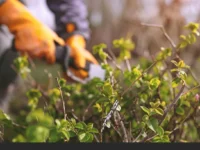Knowing how to avoid clogged drains will help keep your plumbing system in good condition. Learning how to unclog a drain will also help you avoid an expensive plumber's service call.
Drains always seem to clog at the worst possible time, like when you have guests over for the evening. And while you may not be able to stop every drain clog, there are steps you can take to prevent most unpleasant clogs. Here are our tips to help you avoid drain clogs.
Preventing Clogged Drains: What to do
First of all, you should know that the worst problem is to have a blockage in the main sewer line of the house. If you have a clogged sewer line every few months, don't just clean it. Most sewer service companies will "respect" the pipe to see what is causing the problem. This involves sending a remote camera down the line for a visual inspection.
The recurring problem could be tree roots penetrating through clay tile joints, a partially collapsed pipe or even rotten cast iron that allows soil to fall into the line and create a blockage. It's worth paying to find out the cause and fix it rather than worrying about frequent sewer backups and cleaning bills. A plumbing emergency could quickly perform a general inspection of your sewers to see if the problem requires a major cleanup.
If your washing machine drain has never been clogged, you're in luck. Lint, pieces of cloth, tissues and even socks can find their way into your washer's drain pipe and cause problems with your drain. To prevent this stuff from clogging your drain, place a lint trap at the end of the drain hose. You can buy mesh lint traps for your washer's discharge hose at hardware stores, or you can simply use an old nylon stocking. Keep an eye on the trap and replace it when it's full.
Whether it is about hairWhether it's from grease or food, it's organic matter that causes most clogs in your drains. Fortunately, there is a type of bacteria that breaks down the organic matter in your drains. Inject the bacteria into your drains and pipes and it will help break down the organic matter which helps prevent blockages. You can purchase drain cleaning bacteria in granular or liquid form at your local hardware store.
Preventing blockages: what not to do
Grease is one of the worst things you can pour down your drain. Hot grease flows down your drain until it cools in the pipe, where it congeals to start forming a clog. Then, more waste gets stuck in it, and before you know it, you have a major clogging problem.
The best solution is to avoid pouring grease or oil down your drain. The same goes for sealants, which harden through a chemical reaction and harden even under water, so obviously if they settle in your drain, the clog will be hard as a rock.
Sand is another notoriously bad building product for drains. Sand is heavy and settles quickly in traps and pipes to form obstructions that are difficult to remove. Therefore, you should not pour this material down your drains, even with high water pressure this material will leave traces that are difficult to remove in your pipes.
Hair and soap also combine in your bathtub or shower drain to create clogs that may require a drain snake to remove. But you can avoid this task by removing the hair before it reaches the drain.



